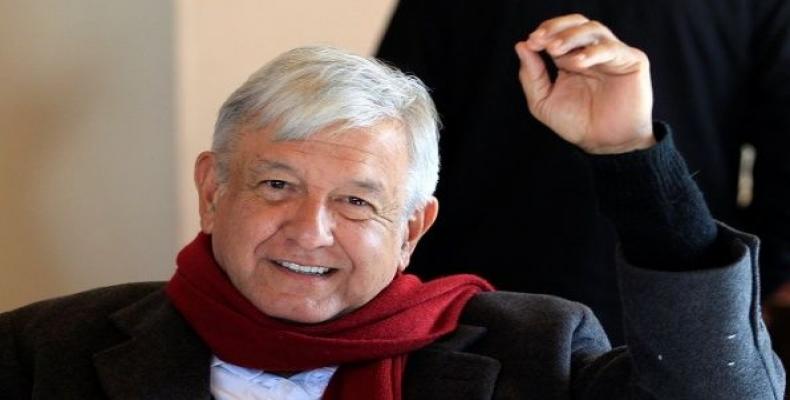Mexico City, January 14 (RHC)-- Mexican President Andres Manuel Lopez Obrador (AMLO) is requesting a civilian head to lead the country's National Guard.
Responding to popular demand, AMLO changed his initial project for the National Guard, a new security body intended to combat violence in Mexico. However, the training and the structure will be based on a military institution.
"Alfonso Durazo (the secretary of Public Safety and Citizen Protection) says President Andrés Manuel López Obrador respectfully requests the Chamber of Deputies that the command of the National Guard is civil," tweeted Mario Delgado Carrillo, federal lawmaker representing AMLO's Morena party.
During a hearing in the lower chamber, at which Army and Navy commanders were present, Durazo said the president asked to make the necessary changes so that the head of the organization could be a civilian and not a military person.
"(AMLO) conveys through my channel the need to rethink the terms of the original design proposed for the National Guard, through the constitutional amendments that this Chamber of Lawmakers deems pertinent," Durazo said.
Originally, the plan was that the National Guard would comprise agents of the Army, Navy and Federal Police under military control via the Secretary of National Defense (Sedena).
AMLO said the National Guard is needed "to guarantee public safety," because until now the special operations of the Army and Navy were aimed at confronting organized crime "and did not protect the citizen."
Mexican president requests civilian head for National Guard

Articles en relation
Commentaires
Laissez un commentaire
Tous les champs sont requisPlus de visites
- Fermeté et dignité face à l'abus
- Opération Northwoods », le plan de bombardement par lequel les États-Unis voulaient justifier leur invasion de Cuba
- Le Venezuela exprime son soutien à Cuba face à la décision du gouvernement américain
- Le ministre des affaires étrangères rejette les nouvelles mesures prises par les États-Unis à l'encontre de Cuba
- Le Conseil des ministres approuve le programme gouvernemental visant à corriger les distorsions et à relancer l'économie d'ici 2025 (+ Vidéo)

